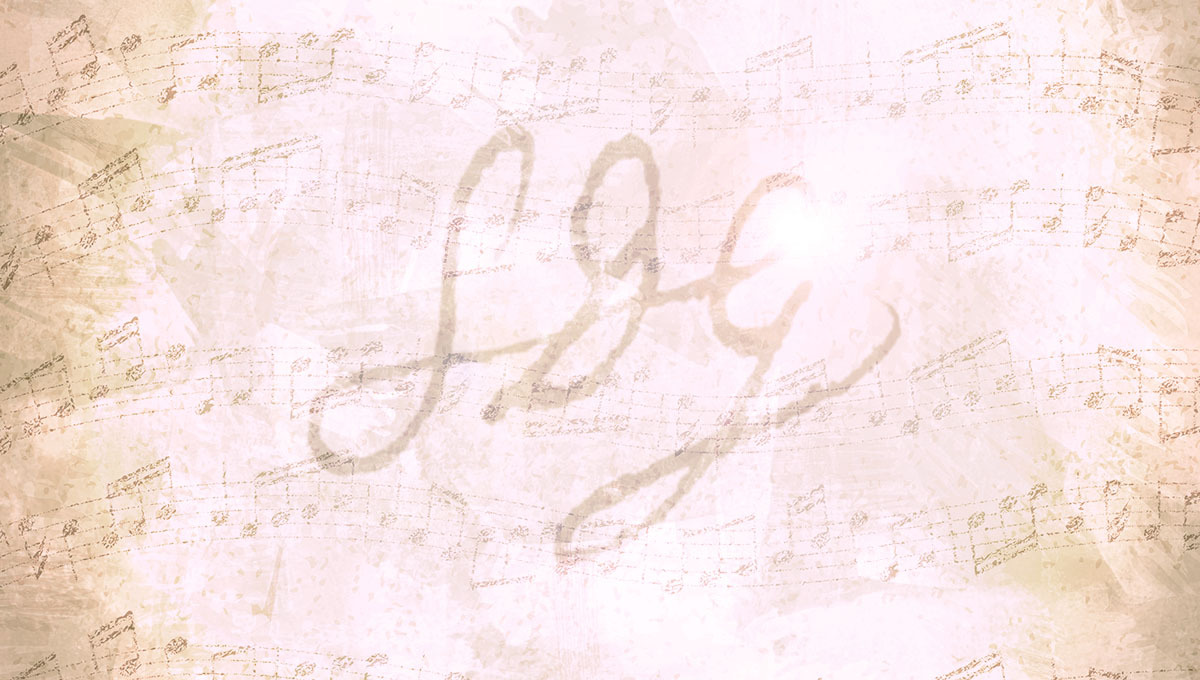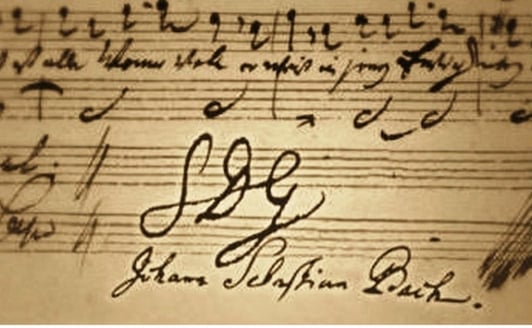Can three letters change your life? Johann Sebastian Bach thought so. While the influence of Bach—a prolific eighteenth-century composer—continues in concert halls today, his greatest contributions to Christians today might be the three letters written at the end of all his sheet music: SDG.
Whether you’re a student or parent, employee or retiree, SDG has the potential to change every day of your life.
SDG is shorthand for a Latin phrase, Soli Deo Gloria, which means, “Glory to God Alone.”
Bach wrote these three letters at the end of his compositions to make the ultimate purpose of his work clear—the music was not to bring glory to the performers or the conductor (or even to Bach, as the composer). This music was crafted for the glory of God.
For Bach, every note, chord, and page of music pointed beyond itself, beyond its human creator, to the Creator.
SDG captures the essence of Paul’s words in 1 Corinthians 10:31: “So, whether you eat or drink, or whatever you do, do all to the glory of God.” For Bach, SDG was a tangible opportunity to remember that all of life is meant for God’s glory. Everything can be used give him the praise and honor he deserves.
While you may not write SDG at the end of a sweeping symphony, you do have the opportunity to stamp every part of every day with reminders of God’s glory.
What does SDG reveal about God’s glory? Here are three lessons to help you give God glory with your whole life.
Lesson 1: Humanity is Made for Glory.
In Psalm 8, David describes God’s good design for humanity: “You have crowned them with glory and honor.”
Let that sink in… You are crowned with glory and honor. However, the glory you were made for is not about you. It comes from God and reflects back to God.
Glory comes from God because he is the gracious Creator and Sustainer of life. He is the one who makes it possible to study, create, care, and enjoy. If God is the source of life, that means that the goal of all life, whether at school, home, work, or in retirement, is to give God glory, honor, and praise.
Bach did not write SDG exclusively on worship music. Those three letters can be found on compositions written for pure enjoyment and entertainment too. SDG isn’t limited to the confines of religious buildings or personal quiet times—God intends every corner of life to be lived Soli Deo Gloria.
Lesson 2: Humanity has a Glory Problem
As Lesson 1 shows, humanity is meant to live for God’s glory in the day-to-day contours of life. However, this doesn’t happen. Everyone lives in the fog of a big problem: sin. With the intrusion of sin into God’s good creation, we are bent on living for our own praise and honor. We want creature glory instead of Creator glory.
Jesus diagnoses this problem with some of the religious leaders of his day when he asks them, “How can you believe when you receive glory from one another and do not seek the glory that comes from the only God?” (John 5:44).
This is one of the calling cards of sin: to get glory from the wrong source and reflect it back to the wrong authority.
SDG excavates the motives and desires of the heart, exposing the human tendency to steal glory. The pay increase at work, the vacation that is well documented (and manicured) on social media, “better” kids, or admission into a more prestigious school.
None of these things are inherently bad—they could be lived for the glory of God alone. But they are often lived for the glory of self alone.
In what ways are you stealing glory from God?
Lesson 3: The Gospel is about Glory.
The good news is that God doesn’t just create humanity to experience his glory, he recreates humanity to live with his glory once again. When the Apostle Paul considers the hope rooted in the death and resurrection of Jesus, he describes the “freedom of the glory of the children of God” (Romans 8:21).
Jesus renews us back to God’s design for humanity.
That means that the solution for our glory problem is not the elimination of glory, but the reorientation of it in Jesus. The gospel is not only about being saved from something––it’s about being saved to something, because humanity was made for something: God’s glory.
Bach’s three letters encapsulate the right human response to God’s grace when he makes things new in Jesus. When you are saved by his grace, you are finally free to see every area of life as an invitation to think, believe, desire, (and even write) SDG.
Whether you’re deep in the cells of spreadsheets, training for a race, studying for an exam, weeding your garden, or listening to Bach, you are invited to do it all Soli Deo Gloria.
Bach’s three letters draw our eyes to God’s glory and to God’s story. They teach us that living for God’s glory is not an ethereal, philosophical idea to ponder. Instead, it’s a tangible opportunity before you as you work in God’s creation and celebrate his re-creation.
For Bach, every note, chord and page of music pointed beyond itself to the glory of God. How can your life point beyond itself to the glory of God today?
SDG
One way to give God glory with every aspect of your life is by actively engaging with the media you watch. Wondering how to reshape what you’re consuming? This post will help.



